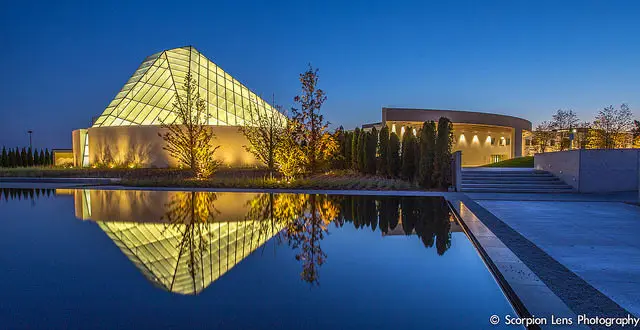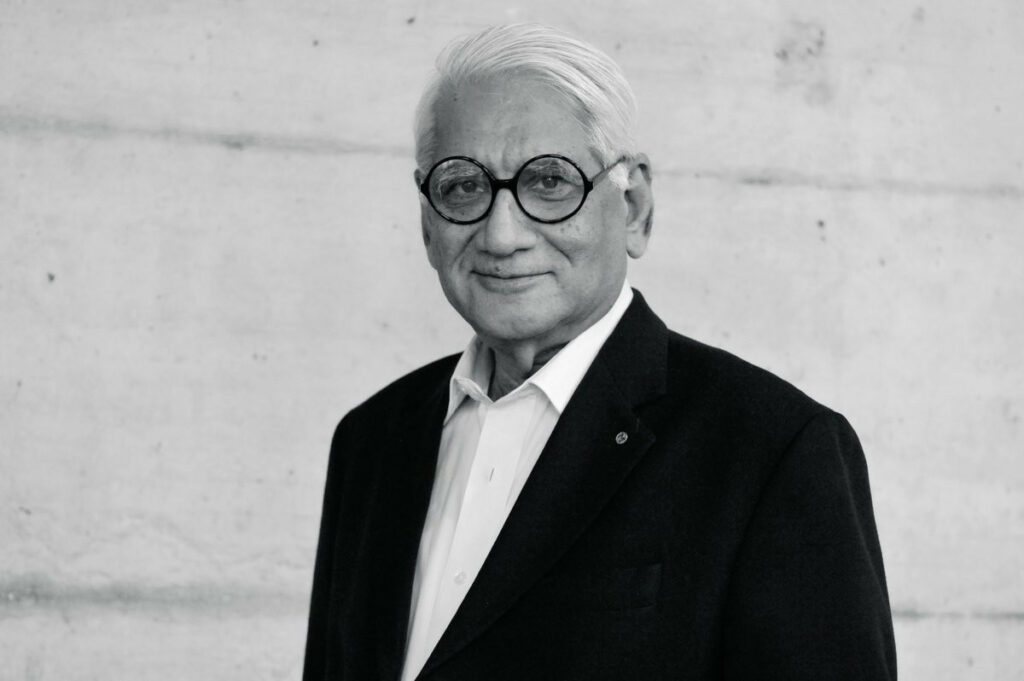

Architect, planner, activist and theoretician, Charles Correa is one of the few contemporary architects who addresses not only issues of architecture, but of low-income housing and urban planning as well. His work covers a wide range, from the Mahatma Gandhi Memorial at the Sabarmati Ashram in Ahmedabad, the Jawahar Kala Kendra in Jaipur and the State Assembly for Madhya Pradesh, to housing projects and townships in Delhi, Bombay, Ahmedabad and Bangalore. He was Chief Architect for ‘Navi Mumbai’ the new city of 2 million people across the harbour from Bombay, and was appointed by Prime Minister Rajiv Gandhi as the first Chairman of the National Commission on Urbanisation.
Correa has taught at several universities, both in India and abroad, and currently spends part of his time at the Massachusetts Institute of Technology, where he is Farwell Bemis Professor in the School of Architecture and Planning. He has been awarded the highest honours of his profession, including the Aga Khan Award for Architecture, the Praemium Imperiale of Japan, and the Gold Medals of the I-JIA and the RIBA
I agree to the terms outlined below:
You agree to upload and assign Mosqpedia Database the rights to use the content worldwide and in perpetuity across all current and future media platforms. Mosqpedia Database may edit, copy, adapt and translate your contribution.
The content will be distributed under the Creative Commons Attribution-Deed – Attribution-NonCommercial-NoDerivatives 4.0 International – Creative Commons
All data will be stored in line with data protection regulations.
I agree to the terms outlined below:
You agree to upload and assign Mosqpedia Database the rights to use the content worldwide and in perpetuity across all current and future media platforms. Mosqpedia Database may edit, copy, adapt and translate your contribution.
The content will be distributed under the Creative Commons Attribution-Deed – Attribution-NonCommercial-NoDerivatives 4.0 International – Creative Commons
All data will be stored in line with data protection regulations.